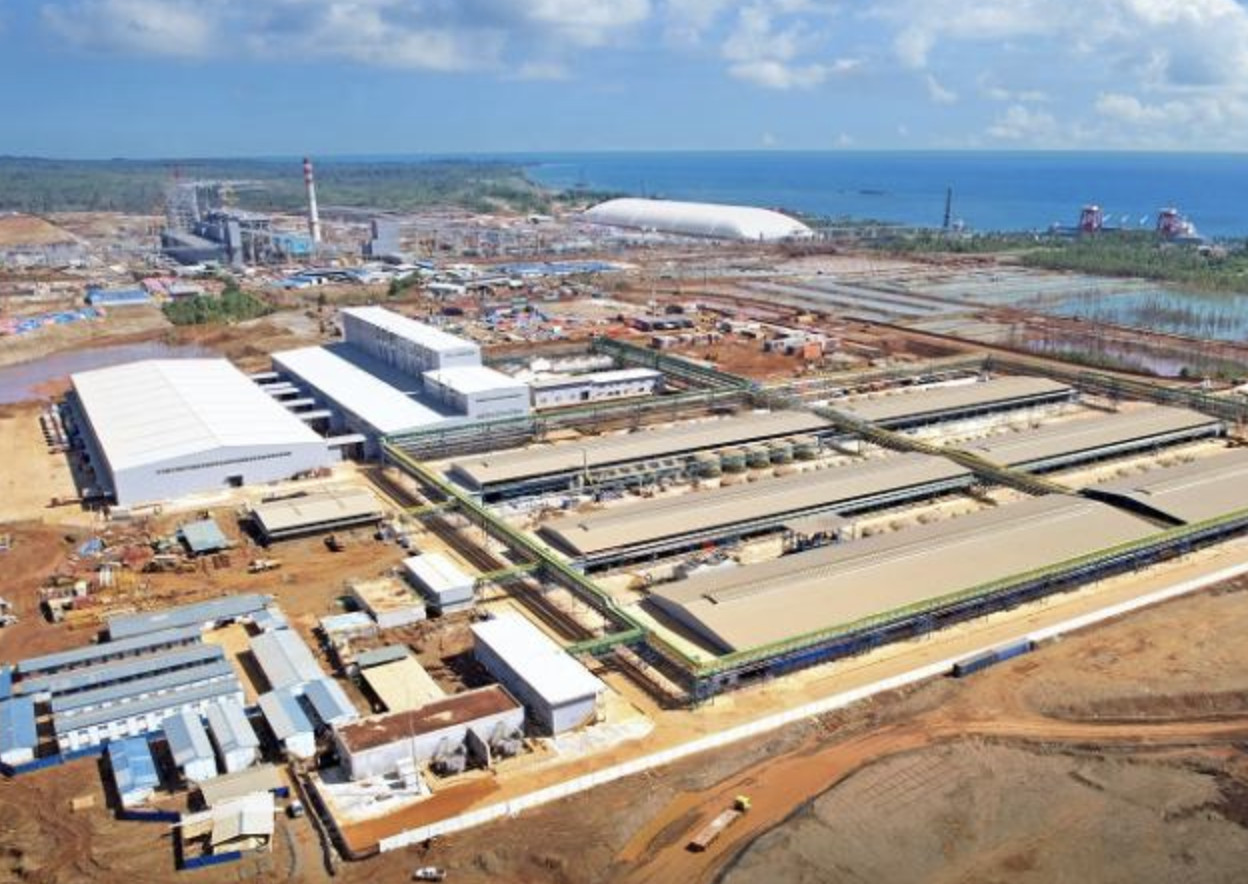Popular Reads
Top Results
Can't find what you're looking for?
View all search resultsPopular Reads
Top Results
Can't find what you're looking for?
View all search resultsDon’t stake it all on nickel
The fact is, the government has been trying to put all its EV development eggs in one basket, that of nickel, but flexibility, innovation and adaptability are key to building an industry that is founded on ever-evolving technology.
Change text size
Gift Premium Articles
to Anyone
I
n last Sunday’s second and final vice presidential debate, Gibran Rakabuming Raka questioned rival Muhaimin Iskandar’s commitment to a cornerstone of Indonesia’s industrial development strategy.
“[Are you] anti-nickel or what?” Gibran said in a poignant jab at Anies Baswedan’s running mate.
During the debate, Gibran, a First Son who is contesting next month’s election alongside Defense Minister Prabowo Subianto, defended the nickel downstream development agenda of his father’s administration.
That agenda is based on the notion that nickel, which Indonesia produces more than any other country, is an indispensable material for making electric vehicle batteries (EVBs).
The problem is, the metal isn’t actually indispensable.
EVB technology, driven by the demands of a rapidly electrifying transportation sector, is evolving fast as the automotive industry invests large sums in research and development (R&D).
The lithium iron phosphate (LFP) battery is said to be the next big thing, with automakers around the world embracing it for its lower costs and some technical advantages over nickel, manganese and cobalt (NMC) batteries, though it also has its drawbacks.
To Indonesia’s dismay, LFP batteries contain no nickel.
When the world’s biggest electric vehicle (EV) producer BYD announced this month plans to build a factory in Indonesia, the excitement was muted by the fact that the Chinese company uses mostly non-nickel batteries. Its rival, United States-based Tesla, which Indonesia has been courting without success for years, also relies heavily on LFP batteries.
The government had been banking on Indonesia’s abundant nickel reserves to lure investors and turn the country into a major player in the global EV and EVB industries. Now, it is finding that carmakers are less interested in our nickel and more interested in our market.
So be it. While we might prefer EVBs that use nickel, we cannot change technological developments or trends the world over. After all, we aren’t trendsetters in battery R&D, and Indonesian’s market demand is still minuscule compared to that of Chinese, US or European consumers.
It might be a bitter pill to swallow, but all that nickel we have is not a dependable foundation for building our battery industry, let alone becoming a global EV hub. The material may also play a much smaller role than planned in the country’s overall downstream development agenda.
No harm done though, because luckily, most of the local nickel processing facilities built so far are for the steel industry. In fact, so much smelting capacity has been created over the past years for billions of dollars that Indonesia has been importing nickel ore from the Philippines to meet domestic demand.
We’ll get rid of our nickel fast enough, with or without EVs.
As for building our EV sector, we have no time to lose. Other countries, including emerging economies like Mexico, India and Vietnam, have been making strides and attracting global EV investment.
We must look to pull factors other than nickel to lure carmakers, and these are the classic things like a favorable investment climate, easy licensing and land acquisition, a competitive labor force. And truth be told, our local content requirement (TKDN) is a major headache for many would-be producers.
In other words, development of our automotive industry and manufacturing in general must be placed on a much broader footing than the availability of certain raw materials. There is no shortcut here.
We have all the opportunities we need to grow the industry with the help of global carmakers, but also with domestic brands, particularly in the motorcycle segment.
Besides, battery technology is changing so fast, there is no way to know what materials will be in major demand a few years from now. Some global players are now focusing their R&D on solid-state batteries, which may or may not contain nickel, so let’s not stake it all on nickel.











